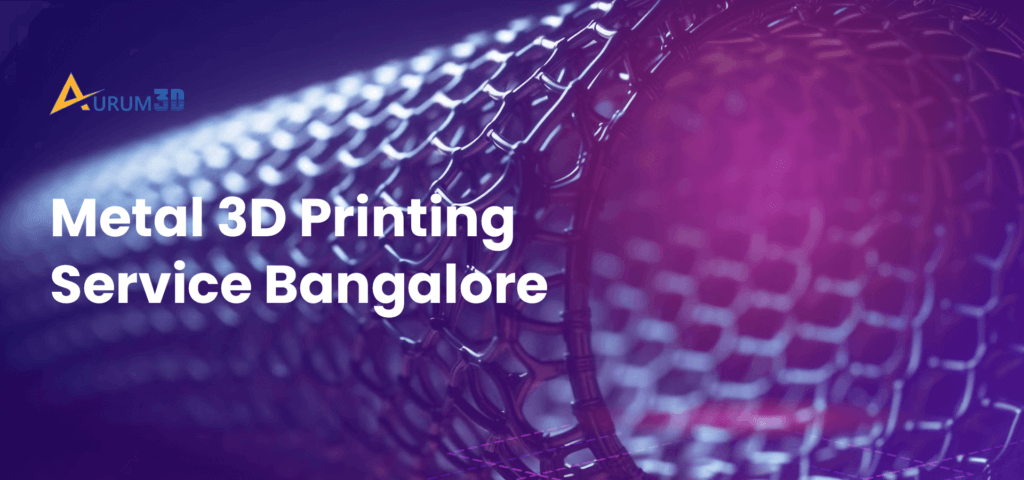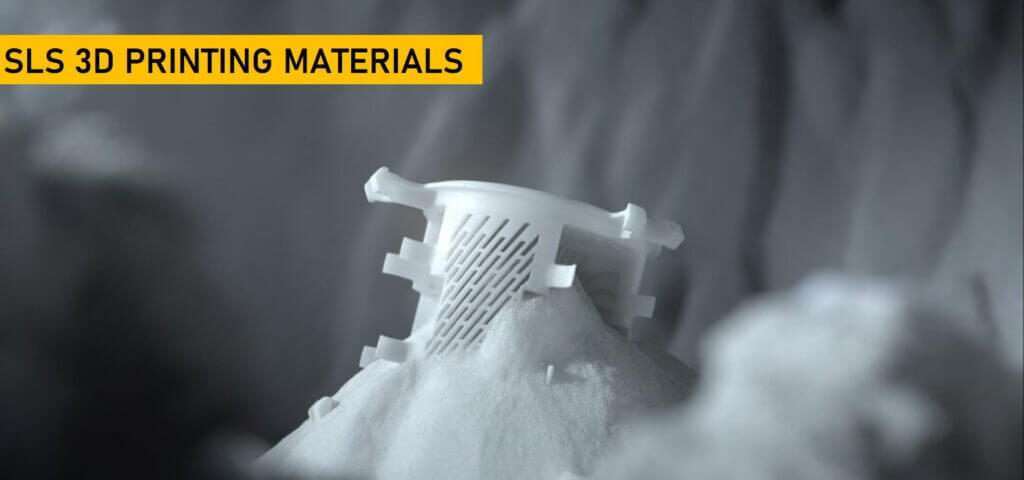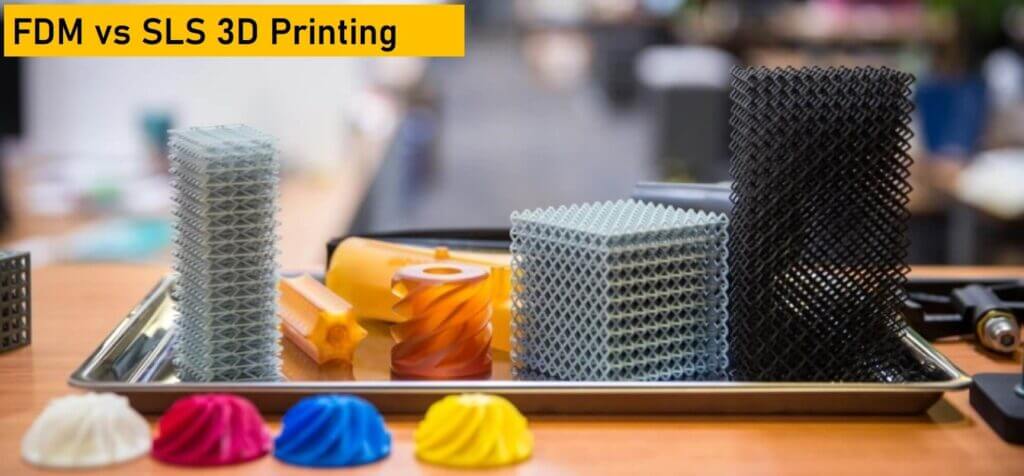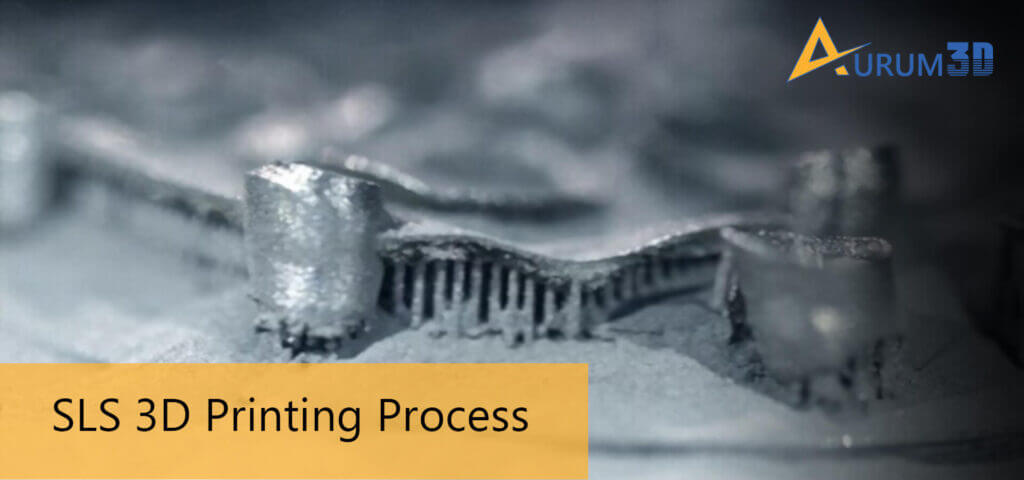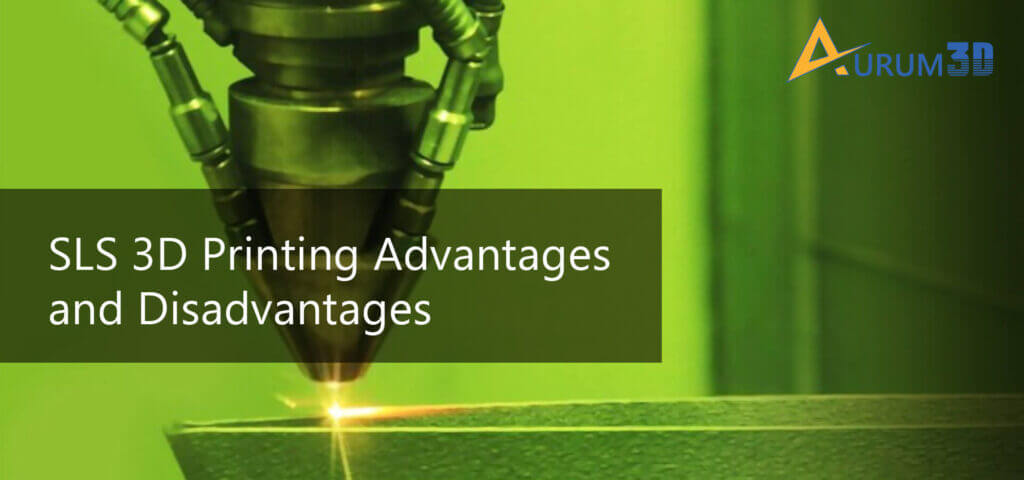SLS 3D Printing
SLS 3D Printing
SLS stands for Selective Laser Printing. It is a process of rapid prototyping that uses a laser as a feed-block to blend powdered material into a 3D-mass structure. The powdered material that is generally used is Nylon 11, Nylon 12,cpolyamide,cPEEK materials etc., Nylon acts as support material. The resolution of SLS 3D printing is imposing.It can make minute intricate design structures with great attributes.
The Process of SLS 3D Printing
The SLS 3D printing procedure starts by splitting the computer aided design data into thin layers. The data is then moved to SLS additive manufacturing apparatus.Gradually the machine begins to create the first layer. This is followed by a roller that upsurges and smoothens the powdered material across the bed. Then,a CO2 laser tracks down the cross-section on the material. As the layer scans the surface,material is heated and blended simultaneously. After formation of a single layer,the bed is hauled down to incorporate the next successive layer. Material is introduced from the container and flattened into smooth layers. This process is carried out repeatedly until a full 3D structure is formed. The unused material from the container can be reused for other purposes, thus mitigating waste entirely.
During the SLS process, parts are enclosed by un-sintered powder that gives complementary solidity and firmness excluding the requirement of support structures.
Properties
Parts produced by SLS 3D printing are lightweight and highly durable.They are chemical and heat resistant. Complex designs, patterns, assemblies can be redesigned with SLS 3D printing.
The parts produced are integrated with high precision and standards.
Applications of SLS 3D Printing
The uses of SLS 3D printing include Investment casting patterns,automotive hardware appliances, tools and fixtures, aerospace components, wind tunnels, air-ducts, artistic sculptures, architectural models, final disposition parts for aerospace, medical and military sectors.
Thus SLS 3D printing provides an excellent opportunity for manufacturers and designers to design solid concepts utilizing nylon with property enhancing fillers and a variety of production parts without the outlaying on tooling mechanisms.
Bangalore has become a prominent additive manufacturing hub in India. Many companies and startups help customers convert ideas and concepts into real-time items using a variety of materials and filaments. Most companies in Bangalore provide FDM, SLS, and SLA 3D printing services. But a surge is being noted in the number of companies offering 3D …
Metal 3D Printing Service in Bangalore Read More »
3D printing technologies differ from each other in many categories including materials or filaments. Selective Laser Sintering (SLS), unlike other widely used 3D printing technology, produces product prototypes and end parts by sintering thermoplastic powder. An SLS printer forms solid parts by sintering and fusing thermoplastic powder using a high-power laser. The thermoplastic powder makes …
SLS 3D Printing Materials Read More »
3D printing technologies help enterprises become a part of Industry 4.0. In addition to driving digital transformation, 3D printing machines have been transforming production chains and supply chains. Fused Deposition Modeling (FDM) and Selective Laser Sintering (SLS) currently power a large percentage of industrial 3D printers. FDM is the most commonly used 3D printing technology, …
FDM vs SLS 3D Printing Read More »
You can produce solid three-dimensional objects from digital three-dimensional models using various 3D printing technologies. Each 3D printing technology produces the three-dimensional object physically by processing and curing the filament in a specific way. Selective laser sintering (SLS) 3D printing technology forms the solid structure by sintering powdered materials using a high-power laser. According to …
SLS 3D Printing Process Read More »
You can use a 3D printer to create a variety of three-dimensional objects from three-dimensional objects. But you can make the 3D-printed object meet your precise requirements only by choosing the right 3D printing technologies. Selective Laser Sintering (SLS) is a mature 3D printing technology that was developed in the mid-1980s. But SLS 3D printing …
SLS 3D Printing: Advantages and Disadvantages Read More »

